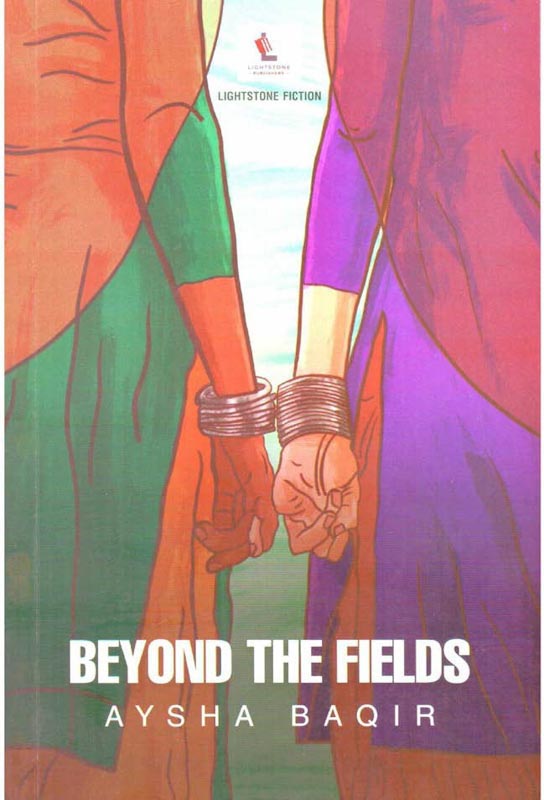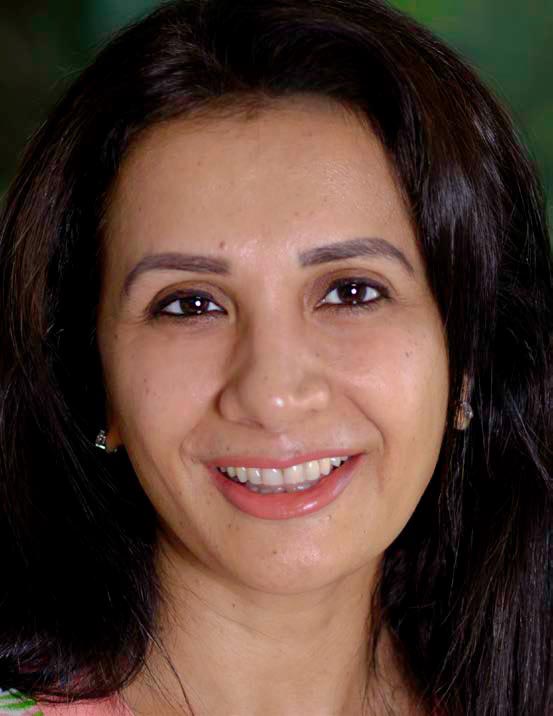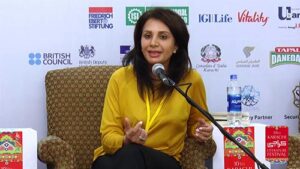
Authors: Aysha Baqir

In recent years, high profile incidents of violence against women, from the Lahore motorway gang rape case to the brutal murder of Noor Mukadam, have rekindled the now decades old debate in Pakistani society about women’s rights and equality and to what extent social structures and attitudes perpetuate gender-based violence. Released in Pakistan earlier this year, Beyond the Fields, by Aysha Baqir, is part of a new wave of feminist critiques that seek to uncover how misogyny and gendered violence overlap with and are perpetuated by other forms of oppression based on class, creed, social status and colour. A fitting debut for the founder of the Kaarvan Crafts Foundation, a non-profit that seeks to empower low-income women by equipping them with essential life skills and raising awareness about gender sensitivity issues.
Set in the 1980s, the novel is told through the perspective of Zara, daughter to a family of landless peasants in rural Bahawalpur. Along with her twin sister Tara, Zara’s days are spent helping their mother with household chores, while school remains the preserve of their older brother Omer. Their gender along with the timing of their births —the monsoon season — marks them out as omens of ill-fortune according to the midwife, who implores their mother “to seek their Pir’s forgiveness.” Despite the dark clouds on their birth, the girls strive to enjoy whatever little happiness they can grab in their childhood. The fields, the river and the forest of their little village provide an escape from the dreary daily routine, becoming the canvass for the girls’ humble games and adventures. However, as the sisters cross puberty and enter their mid-teens what little freedom they enjoyed, gets taken away under the stern direction of their mother, with support from their extended kin in the village. Playing outside is now deemed “haram” as the girls risk being “seen” which would “ruin our family name” proclaims their mother as she initiates the sisters’ transition from “dutiful daughters” into “dutiful wives.”
While it would be all too convenient to paint Zara’s parents and her fellow villagers as backwards villains, Baqir does well to avoid such a simplistic narrative, appreciating the nuance that is a part of life in rural Pakistan. As poor farmers who own no land they can call their own Zara’s parents are at the bottom rung of an agrarian hierarchy dominated by the feudal landlords. For the landlord, everything in the village, including those who live in it, are treated as his personal property. When he wins a bid to export mangoes, the landlord promptly seizes the mango orchids which were once shared amongst the villagers. Though they attempt to protest this expropriation, they are beaten into submission by the landlord’s vicious thugs, who imploring his henchman “to become men” threatens to kidnap and rape the female villagers should anyone step out of line.
Hence, Zara’s parents are trapped in their own struggle for survival and with no access to economic or legal institutions for recourse they must raise their children in an environment where everything can be taken from them at any time. We begin to see that the rural hierarchy is held together by layers of oppression where gender and class overlap, one’s power over women’s sexuality serves as a proxy for the power they enjoy within the system.
While the placid and obedient Tara is usually happy to abide by her mother’s dictates, unless convinced otherwise by Zara, in contrast, Zara seethes and chafes under the restrictions placed upon her. She is keenly aware of the lopsided nature of the notions of honour and shame as applied by her community and her fiery temperament leads her to rebel against the expectations of those around her at whatever opportunities she can find. The difference in the sister’s temperament is accentuated by their appearances. The mild-mannered Tara is bestowed with a “creamy peach” complexion, perfectly complimenting her obedient nature with the socially desirable skin tone. Conversely, the wayward Zara is, by her own admission, “dark as a berry,” a shade treated by their mother as some kind of ailment, leading her to administer various herbal tonics on an exasperated Zara. The allotment of chores between the sisters appears to indicate that Zara is treated as somewhat of a lost cause on account of her skin, with Tara being given less strenuous tasks such as cooking and mending clothes, while Zara is charged with fetching water, sweeping and washing clothes.
However, Zara refuses to be cowed by the unfair treatment she endures, harbouring no ill will towards her sister, or even their mother, and remaining determined to live life on her own terms. Despite her mother’s reservations, Zara is allowed to be home schooled by her brother after he pleads her case to their mother, on the condition that the lessons will be kept a secret from their father and the rest of the village. Additional encouragement is provided by “Master Saab” who aims to open a school for boys and girls in the village and believes Zara can serve as a model for other girls in the village. To see other men act as Zara’s primary source of encouragement as opposed to the women in her life arguably sets Beyond the Fields apart from other novels in the feminist literature genre, where men are often the primary antagonists.
Although Zara’s mother remains adamant that girls from their village don’t go to school and that Zara’s ultimate destiny is still to become a wife, this does not dampen Zara’s hopes. Through her lessons, Zara is given a fresh source of personal inspiration, as she is exposed to the world of English literature, finding heroines in Laura Ingalls of Little House on the Prairie and Jo of Little Women. In these characters Zara finds companions in her struggle to break free and conquer the challenges of life as an independent woman, though she despairs that unlike them, she may likely never be able to put her ambitions into action.

This changes in an unexpected and cruel way when Zara is forced to confront the rape of her sister. Faced with the tragedy that has befallen their daughter the parent’s concerns quickly turn from bringing their daughter’s tormentors to justice to protecting the family honour. Rather than being seen as a victim Tara becomes a liability in an inhuman game of social capital as the parents fear that revealing Tara’s rape will bring shame to the family and lead to them being ostracized and even exiled from their village. Interestingly, among the adults, the one to insist most ardently on bringing Tara’s rapists to justice is the local maulvi. Rather, it is the pre-Islamic notions of honour and shame that overrule the maulvi. Furthermore, we now see the socio-political developments of the Zia era come into view. The Hudood ordinances disadvantage Tara as her testimony is worth only half that of a man’s, diminishing her chances of convicting her tormentors in a court. With little hope of justice, the parents ship Tara off to Lahore in secret, claiming that she has been married to a family friend, though it is later learnt that her apparent husband has been arrested for operating a brothel.
To get to the bottom of what has become of her sister, we see Zara finally take charge as she chooses to sacrifice the prospects of any further progress in her studies and sets off to Lahore to work as domestic help in the hopes of finding and rescuing her sister. In this regard the novel can be split into two stages, bound together by Zara’s struggles to advance herself. In the earlier stages we see Zara confronted by various obstacles eager to acquire the means to break free of them and in the second half she is forced to advance to a stage where she must take what little she has and face the most dangerous elements of her life head on. Ironically, it is only by sacrificing her own goals in life that Zara is truly able to break free.
Through Zara’s journey and the unflinching portrayals of the cruel misogyny she must endure the reader is able to empathize with her struggles intimately and cheer for her success. It is her perseverance and development as a person that keeps the reader engaged, however, this also undermines the novel in certain respects. The focus on Zara takes away from the other character’s, such as Tara and Omer, development and they seemingly remain stagnant throughout the novel, serving as useful vehicles for the growth of the protagonist. Nevertheless, so gripping is Zara’s journey that the reader cannot really complain. With plenty of poignant social commentary packed throughout, the reader is not only given an inspiring tale of female struggle and liberation but, through it, fresh insight into the social and political struggles that are shaping women’s and men’s lives in Pakistan.

The writer is a staff member.



